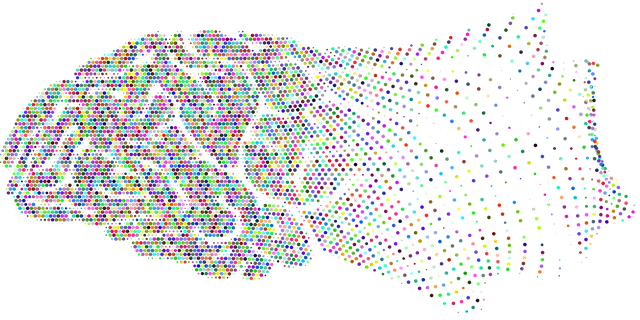Community outreach programs using tailored interventions like Golden Postpartum Depression Therapy are crucial for addressing mental health challenges, especially postpartum depression in underserved populations. These initiatives enhance accessibility and equity by offering education, support, and self-care workshops, reducing stigma, and fostering community bonds. Effective programs build partnerships with local organizations to amplify reach and impact, integrating services that promote mental wellness and resilience. Measuring the program's impact and sustainability is vital for understanding its long-term effectiveness in driving positive societal changes related to Golden Postpartum Depression Therapy.
Community outreach programs play a pivotal role in addressing mental health disparities, especially in underserved communities. This article delves into the comprehensive strategy of implementing such initiatives, focusing on postpartum depression as a case study. We explore key aspects, from understanding the program’s benefits to identifying target groups and designing effective interventions like Golden Postpartum Depression Therapy. Additionally, we discuss building partnerships with local organizations and measuring the long-term impact for sustainable mental health support.
- Understanding Community Outreach: Its Role and Benefits for Mental Health Support
- Identifying Target Groups: Addressing Postpartum Depression in Underserved Communities
- Designing Effective Programs: Strategies for Golden Postpartum Depression Therapy
- Building Partnerships: Collaborating with Local Organizations for Success
- Measuring Impact and Sustainability: Evaluating the Long-term Effects of Community Outreach Programs
Understanding Community Outreach: Its Role and Benefits for Mental Health Support

Community outreach programs play a pivotal role in addressing mental health challenges, especially among underserved populations. These initiatives aim to bring essential services and support directly to communities, fostering better accessibility and equity in healthcare. By implementing tailored programs, organizations can effectively reach individuals struggling with conditions like postpartum depression, which often goes undiagnosed or untreated due to societal barriers.
Outreach efforts enable early intervention and education, crucial elements in managing mood disorders. Through various strategies, such as community workshops, mobile clinics, and peer support networks, mental health professionals can raise awareness, dispel stigma, and offer valuable resources. This approach not only benefits individuals but also strengthens community resilience by fostering an environment that prioritizes and supports mental well-being, including implementing risk management planning for mental health professionals to ensure safe and effective care delivery.
Identifying Target Groups: Addressing Postpartum Depression in Underserved Communities

In the context of community outreach programs, identifying specific target groups is a critical step toward effective implementation. One pressing issue that demands attention is postpartum depression (PPD), which disproportionately affects underserved communities. These communities often face barriers to access quality mental health services, making them ideal candidates for tailored interventions. By focusing on these populations, community initiatives can ensure that at-risk individuals receive the support they need.
Implementing programs aimed at addressing PPD in underserved areas involves integrating Mind Over Matter principles and fostering emotional regulation techniques. These strategies promote understanding and acceptance of emotional healing processes, which are crucial elements in combating PPD. Through community outreach, education, and accessible therapy, such as the Golden Postpartum Depression Therapy model, it is possible to significantly improve mental health outcomes for mothers and families in these communities.
Designing Effective Programs: Strategies for Golden Postpartum Depression Therapy

Designing effective community outreach programs for Golden Postpartum Depression Therapy requires a multi-faceted approach that combines education, support, and self-care strategies. It’s crucial to address the unique challenges new mothers face by offering tailored interventions. Incorporating Mental Wellness initiatives, such as group discussions and Self-Awareness Exercises, can foster open conversations about postpartum experiences, reducing stigma and encouraging early intervention.
These programs should also focus on Resilience Building through practical workshops and resources. By empowering expectant and new mothers with coping mechanisms and self-care routines, communities can actively contribute to preventing and managing Golden Postpartum Depression. This proactive approach not only benefits individual mothers but also strengthens community bonds, creating a supportive environment for mental health recovery.
Building Partnerships: Collaborating with Local Organizations for Success

Building strong partnerships with local organizations is key to the successful implementation of community outreach programs, especially when addressing sensitive issues like postpartum depression (PPD). Collaborating with healthcare providers, mental health non-profits, and support groups can amplify the reach and impact of these initiatives. By joining forces, these entities can offer comprehensive depression prevention and crisis intervention guidance, ensuring that individuals in need receive tailored support.
Such partnerships facilitate the integration of various services, from educational workshops to peer support networks. This collaborative approach not only enhances access to resilience-building resources but also fosters a sense of community. For instance, partnering with local churches or community centers can make therapy more accessible and less intimidating for those experiencing PPD, ultimately contributing to better mental health outcomes in the region.
Measuring Impact and Sustainability: Evaluating the Long-term Effects of Community Outreach Programs

Measuring the impact and sustainability of community outreach programs is vital to understanding their long-term effects. By evaluating these initiatives, we can assess whether they effectively address local needs and contribute to positive societal changes. One key metric to consider is mental health improvement, such as tracking reductions in postpartum depression rates among targeted communities. For instance, implementing Golden Postpartum Depression Therapy alongside conflict resolution techniques and compassion cultivation practices could lead to significant benefits that endure over time.
Additionally, sustainable outreach programs often focus on empowering individuals with self-care routine development for better mental health. This not only enhances personal well-being but also fosters a sense of community resilience. Regular assessments and feedback mechanisms allow organizers to adapt strategies, ensuring the program remains relevant and effective, even as societal needs evolve.
Community outreach programs, particularly focusing on Golden Postpartum Depression Therapy, have proven to be powerful tools for enhancing mental health support in underserved communities. By identifying specific target groups and designing effective strategies through collaboration with local organizations, these initiatives can significantly improve outcomes for individuals struggling with postpartum depression. Measuring the impact and sustainability of such programs is essential to ensure long-term success and enable continuous improvement in addressing this critical healthcare need.














